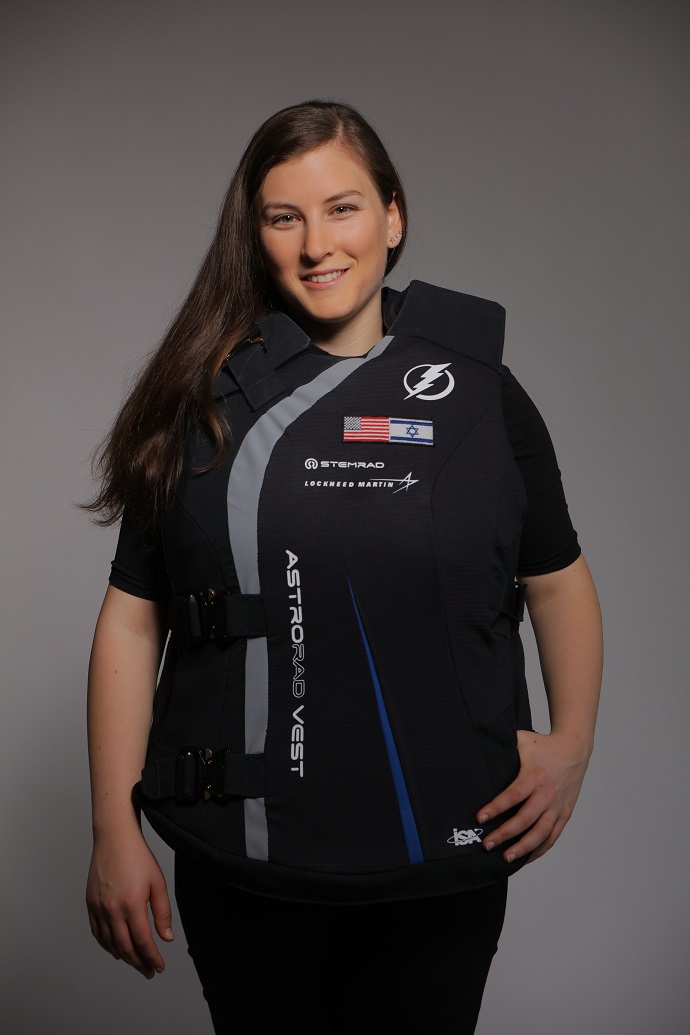Israel signs Artemis accords for moon exploration
The country is already testing a radiation vest on Artemis 1, the first uncrewed mission of the program.

Israel has signed the Artemis Accords to deepen its existing lunar collaborations with NASA, the U.S. space agency said on Tuesday (Jan. 26).
Israel Space Agency Director General Uri Oron signed the document during a ceremony Jan. 26 in Tel Aviv, pledging more support for the international Artemis program that aims to return humans to the moon in 2025.
The accords already include more than a dozen nations that have committed in ways large or small to contribute to lunar exploration. Israel is already participating in the Artemis 1 mission, set to launch without a crew later this year around the moon, with the AstroRad radiation vest. The vest will track how much radiation an astronaut may receive during their lunar voyage, which takes place outside the protective Van Allen belts near Earth.
Related: 8 nations sign US-led Artemis Accords for moon exploration
"Today's signing of the Artemis Accords will only serve to strengthen the long-standing U.S.-Israeli relationship in the area of space exploration, and I look forward to many more years of working together to achieve our common goals for the benefit all of humanity," NASA administrator Bill Nelson said in a statement Tuesday.
Among other NASA collaborations, Israel flew multiple space shuttle experiments and is famous for its astronaut Ilan Ramon, the first Israeli to fly in space. Ramon died during the Columbia shuttle breakup almost exactly 19 years ago, on Feb. 1, 2003.
Israel's space program is already pursuing lunar exploration in other ways. For example, an Israeli collaboration attempted an ambitious moon landing with the robotic Beresheet spacecraft in 2019. A successor mission is in the works for 2024 to re-attempt the failed landing.
Breaking space news, the latest updates on rocket launches, skywatching events and more!
In the same NASA statement, Oron said Israel sees "enormous potential and endless opportunities" in space exploration, which was part of the rationale for joining Artemis more formally.
"I am convinced that the Artemis program will promote humanity a step further, not only in space but also here on Earth," Oron said. "The Israel Space Agency will continue to promote collaborations in research, science, innovation and economy within the framework of the Artemis Accords between Israeli organizations and our international partners."
NASA noted that it expects more countries to sign on to the Artemis Accords in the future. The first crewed mission, a moon-orbiting venture, is expected in 2024. The Artemis 3 landing mission will follow in 2025, under current schedules.
Follow Elizabeth Howell on Twitter @howellspace. Follow us on Twitter @Spacedotcom or on Facebook.

Elizabeth Howell (she/her), Ph.D., was a staff writer in the spaceflight channel between 2022 and 2024 specializing in Canadian space news. She was contributing writer for Space.com for 10 years from 2012 to 2024. Elizabeth's reporting includes multiple exclusives with the White House, leading world coverage about a lost-and-found space tomato on the International Space Station, witnessing five human spaceflight launches on two continents, flying parabolic, working inside a spacesuit, and participating in a simulated Mars mission. Her latest book, "Why Am I Taller?" (ECW Press, 2022) is co-written with astronaut Dave Williams.

